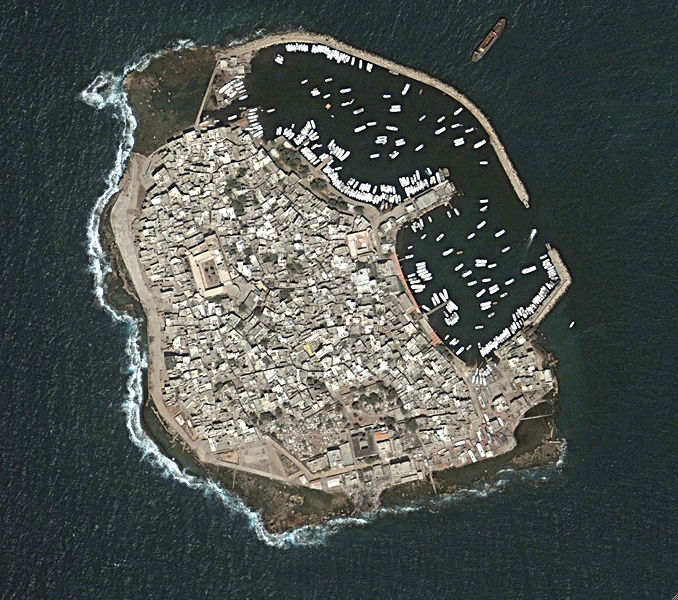Several catalogs
( e.g. Ambraseys, 1962,
Antonopoulos, 1979,
Antonopoulos, 1980a, and
Sbeinati et. al., 2005)
consider the possibility that a tsunami was associated with The
Beirut Conversion Quake of 347/348/349 CE. While this is valid speculation, none of the historical sources mention a tsunami. The way a tsunami entered these
catalogs is likely via Sieberg (1932b) who mentioned damage on the
Island of Arwad due to this earthquake.
348 Earthquake on the Syrian Coast where Beirut and Arwad Island suffered.
348. Zers Arendes Beben an der syrischen kaste, wobei vor allein Berytus und Aradus (Ruad) litten
The Island of Arwad is approximately 100 km. from Beirut. In the larger
551 CE Beirut Quake,
Sieberg (1932b) mentions widespread destruction in Beirut and that the earthquake was only felt in the Island of Arwad.
He does not say it suffered. Based on this, if
Sieberg (1932b)
mentions suffering on the Island of Arwad due to the Beirut Conversion Quake,
the suffering would likely be due to a tsunami rather than seismic shaking. Unfortunately,
Sieberg (1932b) did not list his sources.
As neither of the sources (Theophanes and Cedrenus) mention damage
on the Island of Arwad, this tsunami report, though possible, is likely a false one.
Salamon et. al. (2011) concurred that this tsunami report was probably false.
 Satellite image of Arwad
Satellite image of Arwad
